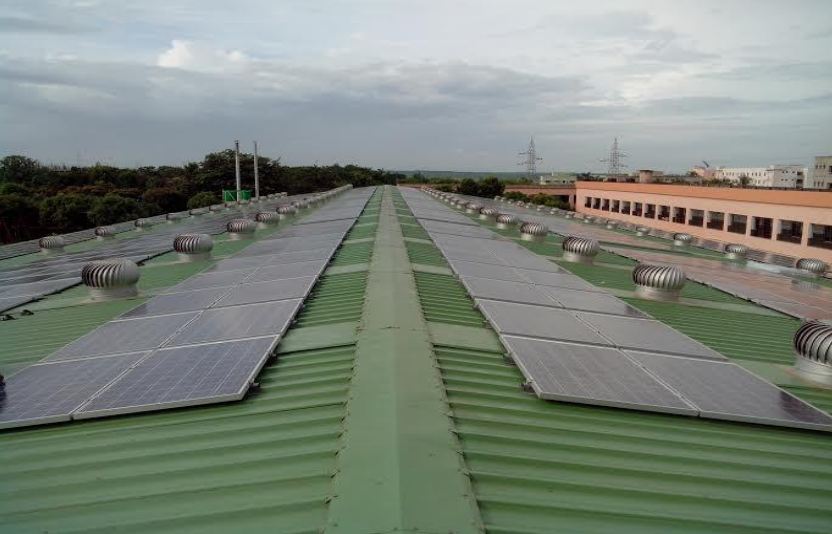The drive towards rooftop PV deployment in India is marching on, with news of another large-scale rooftop tender underway within the country. Central Electronics Limited (CEL) is running the tender, which has tight tariff limits for the participating projects.
The basics of the tender are that it is for 100 MW of grid-connected rooftop solar to be installed on office buildings and railway stations under zonal railways. Projects can be a minimum size of 50 kw, while each individual bidder is limited to apply for projects within three states or for projects with combined capacities of 20 MW.
The tariff paid for the electricity generated by the projects has been limited to Rs. 6.00 (US$0.087) per kWh, and Rs. 4.00 (US$0.058) per kWh in special category states and union territories. Interestingly, the tariff stream will then be levelized with a discounting rate of 11% year-over-year, while participants will have until 6 March 2017 to put together their bids in hope of winning the projects.
This is the latest in a long line of significant solar rooftop tenders in India, as the country tries to encourage rooftop solar deployment in a bid to reach its ambitious goal of having 40 GW of rooftop solar installed by 2022. According to Mercom Capital’s India Solar Project Tracker, a total of 605 MW of rooftop solar has been installed in India, as of December 2016, so there is still a very long way to go to even get close to the eventual target.
This content is protected by copyright and may not be reused. If you want to cooperate with us and would like to reuse some of our content, please contact: editors@pv-magazine.com.



By submitting this form you agree to pv magazine using your data for the purposes of publishing your comment.
Your personal data will only be disclosed or otherwise transmitted to third parties for the purposes of spam filtering or if this is necessary for technical maintenance of the website. Any other transfer to third parties will not take place unless this is justified on the basis of applicable data protection regulations or if pv magazine is legally obliged to do so.
You may revoke this consent at any time with effect for the future, in which case your personal data will be deleted immediately. Otherwise, your data will be deleted if pv magazine has processed your request or the purpose of data storage is fulfilled.
Further information on data privacy can be found in our Data Protection Policy.